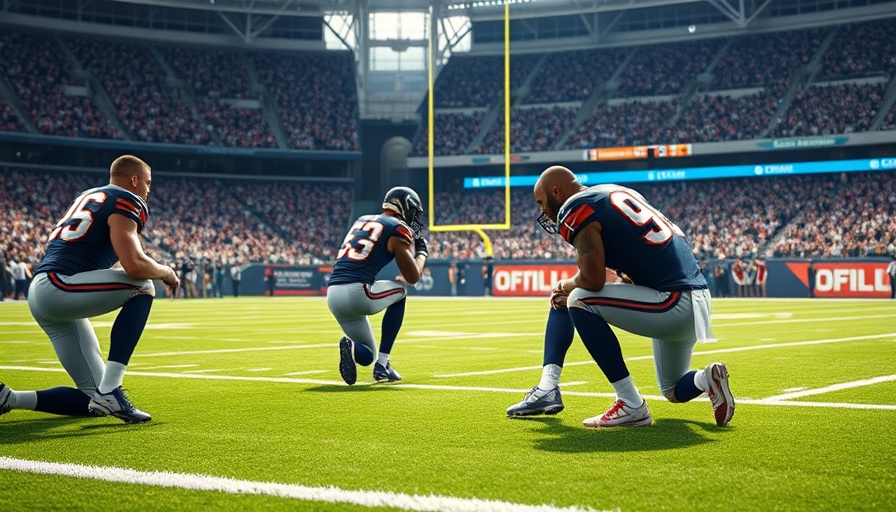
Ex-NFL Player in Spotlight for Major Dog Fighting Bust
In a shocking development, former NFL running back LeShon Johnson has been arrested in what the Department of Justice is calling the largest federal dog-fighting bust in history. With nearly 200 dogs seized from his property in Oklahoma, this case has ignited discussions about animal cruelty within competitive sports contexts. Johnson’s involvement in operating what he named "Mal Kant Kennels" brings forth troubling questions regarding the intersection of sports culture and unethical practices that exploit animals for entertainment.
The Scale of the Operation: A Cause for Concern
The sheer number of dogs seized—190 pit bull-type canines—is staggering and reflects a significant operation. Johnson's past, marked by a prior guilty plea to animal fighting charges in 2004, raises eyebrows about how accountability is enforced within the sports community. He allegedly bred these dogs for their fighting traits, contributing not just to his operation but also to a broader underground dog-fighting culture where champions and grand champions, dogs that have won multiple fights, are terms of prestige.
Legal Ramifications: What Lies Ahead for Johnson
Facing charges related to possessing and trafficking dogs for fighting, Johnson could face up to 5 years in prison per count, alongside hefty fines. The legal ramifications emphasize that dog fighting is treated as a severe crime, prohibited under laws that connect such activities to interstate commerce. U.S. Attorney Christopher J. Wilson aggressively denounced Johnson's actions, emphasizing that "dog fighting is a cruel, blood-thirsty venture." This perspective challenges the normalization of violent sports and highlights the need for stricter enforcement against related cruelty.
Connecting the Dots: Sports Culture and Animal Rights
This incident isn't an isolated one but rather part of a broader conversation about how sports often intersect with societal issues like animal rights. The portrayal of rugged masculinity associated with certain sports can sometimes glorify violence, not just against fellow humans but against animals as well. Historical contexts show that while competitive instincts are celebrated, they can spiral into dangerous territories that disregard ethical considerations. Re-examining these cultural narratives is essential for fostering a more compassionate approach to both sports and animal welfare.
Potential Responses: The Role of Education and Awareness
Moving forward, how can communities respond to prevent such incidents? Enhanced education and awareness around the humane treatment of animals is paramount. Engaging sports communities in discussions about compassionate treatment and providing insight into the legal consequences of animal cruelty can lead to more conscious decisions. Whether it's through workshops or community outreach programs, there’s an opportunity to reshape narratives and encourage respect for all living beings.
Looking Ahead: What Does This Mean for Sports Fans?
As fans and participants in various sports, the implications of this case resonate well beyond the courtroom. It's a call to reflect on our values as sports enthusiasts. Do we ignore the actions of athletes off the field, or do we hold them accountable for their personal choices? Each response shape financial support for teams and players, dramatically impacting the sports landscape.
As we digest the news surrounding Johnson's case, let’s collectively push for accountability. Embracing a culture that prioritizes the ethical treatment of animals not only reflects our values but elevates the integrity of the sports we love.
 Add Row
Add Row  Add
Add 




Write A Comment